To meet the future demand for tech talent and foster cross-disciplinary collaboration and innovative thinking, the College of Smart Computing and Quantum Information at Chung Yuan Christian University, in collaboration with the Quantum Information Center, hosted the “1st Smart Computing and Quantum Information Innovation Competition,” which concluded successfully on October 30 at the Zhixing Leadership Hall. Students showcased their creative projects through detailed posters and presentations, demonstrating diverse applications and technical expertise. The event was highly praised and featured awards such as the Excellence Award, Best Application Award, Best Innovation Award, Best Technology Award, and the Special Quantum Information Award.
On the day of the event, Professor Lin Min-Tsong from the Department of Physics at National Taiwan University was invited to provide guidance. He advised faculty and students to form research teams, leverage national high-speed network resources, and engage in deep collaboration with industry to address real-world challenges and achieve technological breakthroughs. His insights offered valuable inspiration for the college’s growth and strengthened its research capabilities.
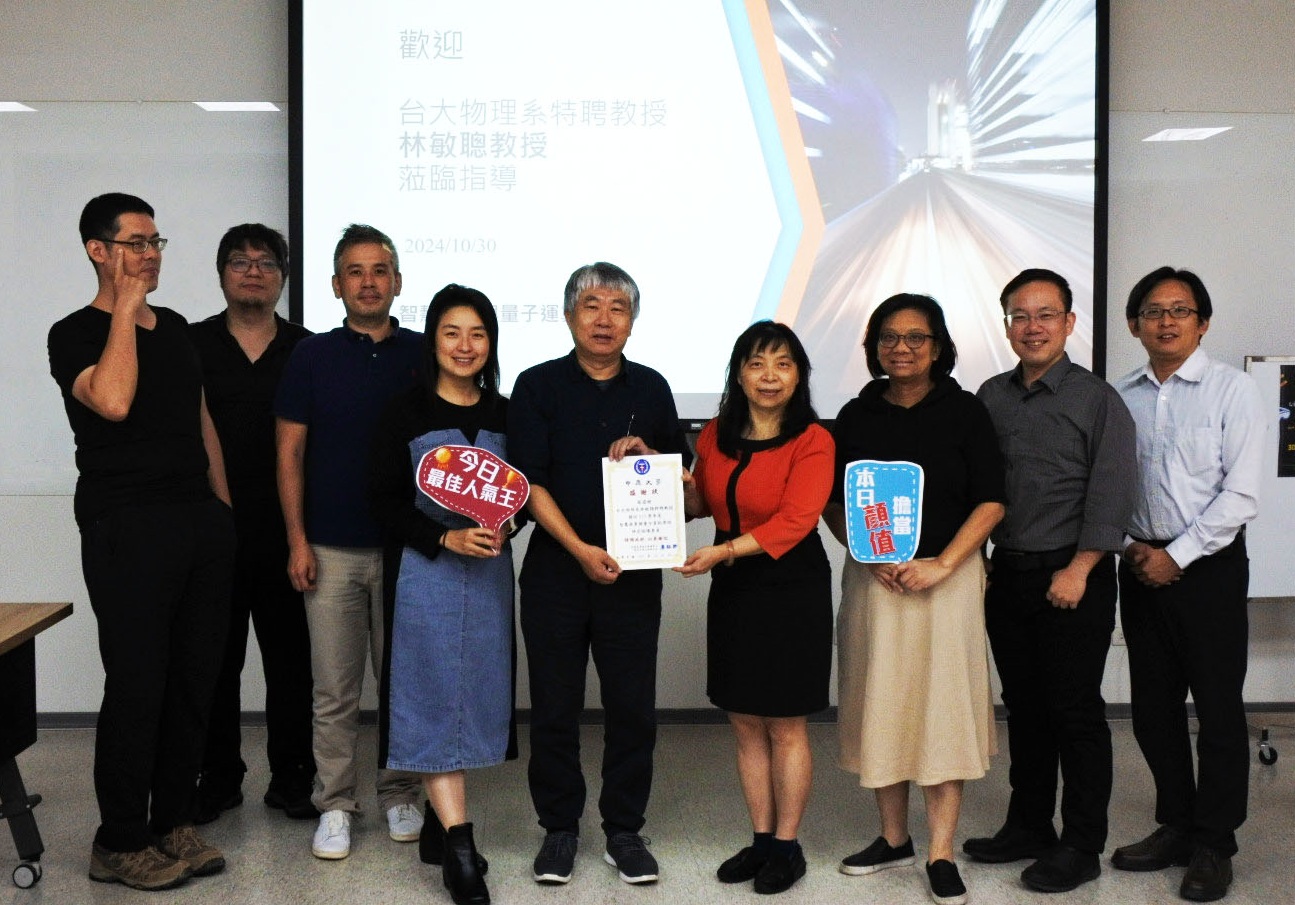
The Excellence Award was won by Class 3A of the Smart Computing and Big Data Bachelor’s Program for developing the “AI Programming Assistant,” an online compiler using large language models to offer a simple and user-friendly coding environment. The platform includes three different language models, allowing users to ask the AI assistant questions for code analysis or solutions without the need to manually copy code, significantly enhancing learning convenience.
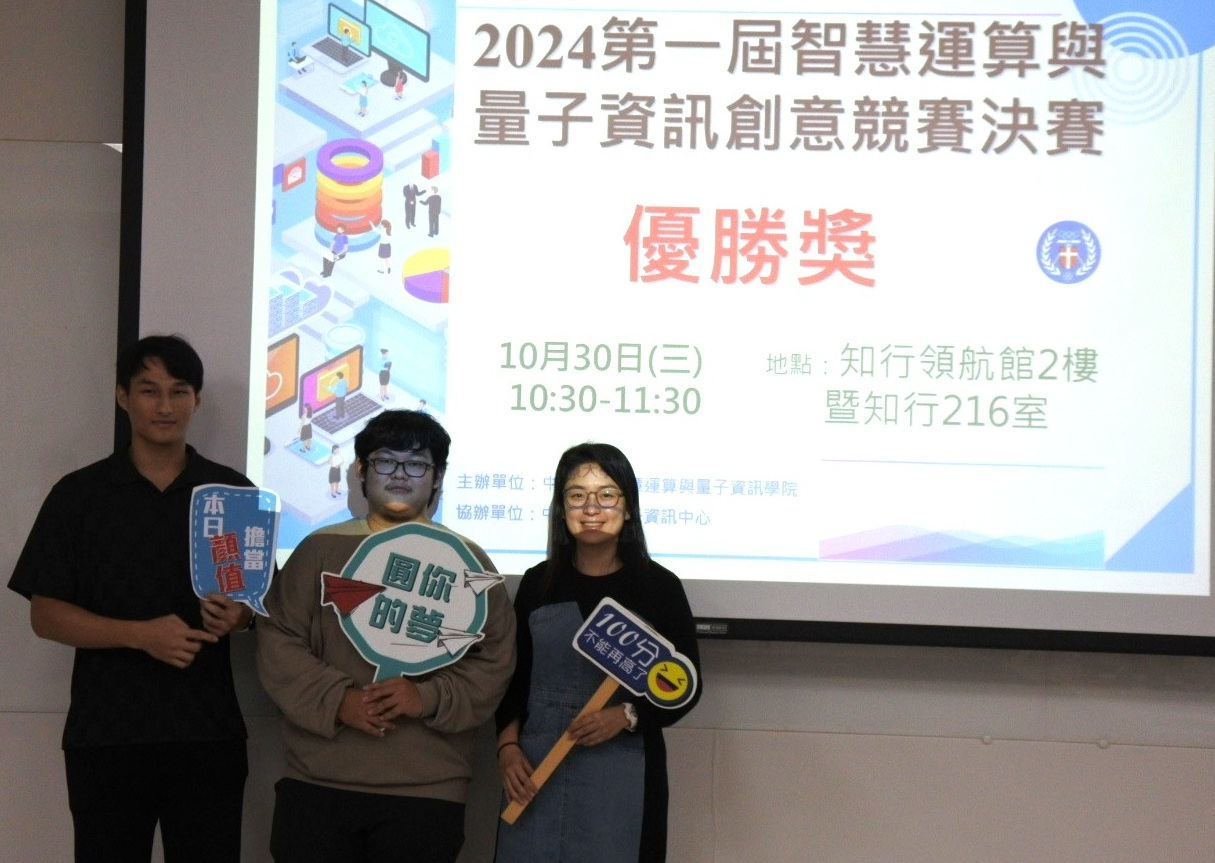
The Best Application Award was presented to Class 3B of the Bachelor’s Program for their project “AI-Assisted Medical Procurement Data Processing Technology and Innovative Bargaining Model.” This project uses web scraping technology to extract pricing data for medical supplies and applies AI tools for trend analysis, assisting decision-makers in making precise procurement choices and providing data support for the medical procurement process.
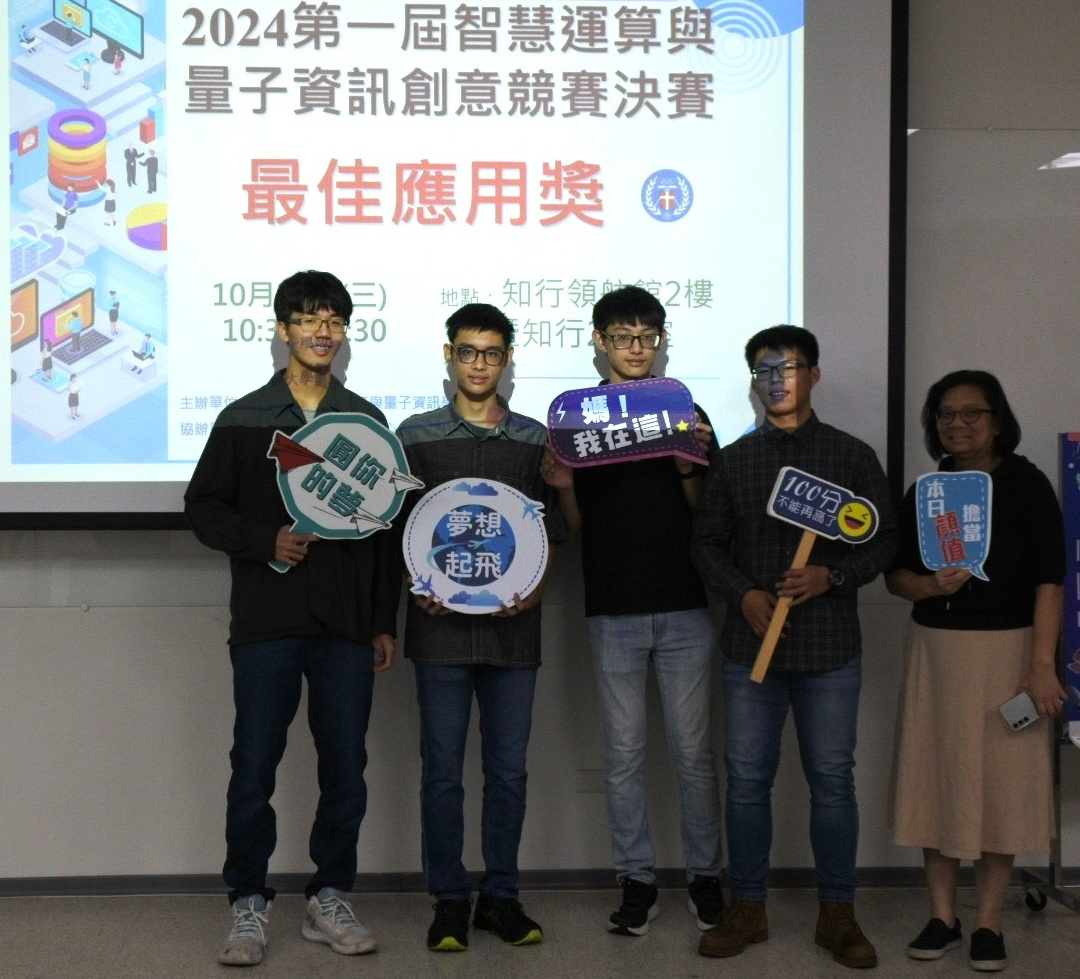
The Best Innovation Award went to the project “Using Machine Learning to Detect Eye Changes for Preventing Health Issues in Elderly Living Alone.” This project employs image recognition technology to monitor eye health changes in elderly individuals. Detection devices are embedded in glasses to proactively identify acute health conditions, using the eye’s rich microvascular network as an indicator of potential health issues, offering an innovative approach to health monitoring and prevention.
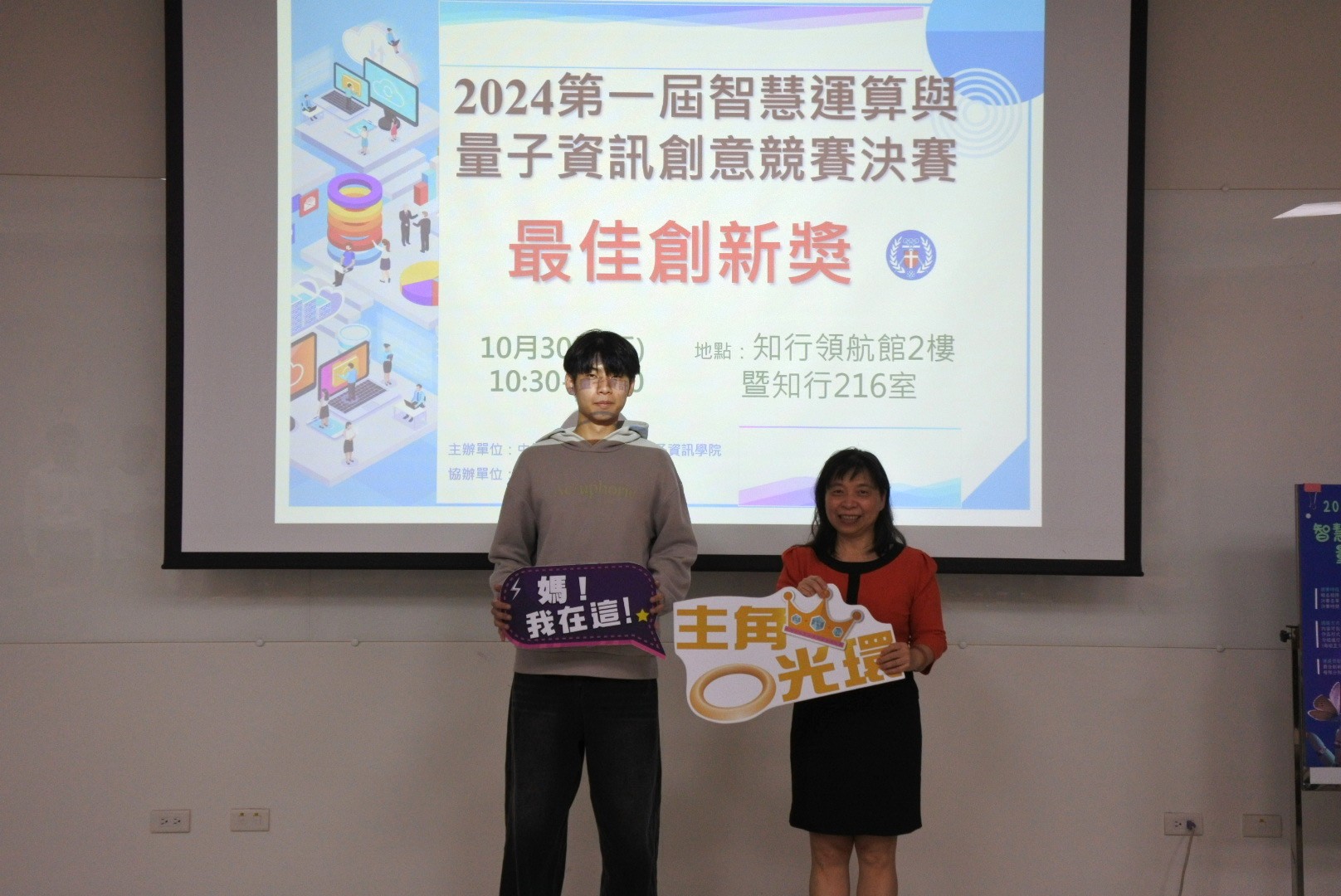
The Special Quantum Information Award was given to the “AI Exam Paper” system, which integrates AI with quantum technology to dynamically adjust question difficulty and generate capability analysis reports. This helps test-takers gain a comprehensive understanding of their strengths and weaknesses. The system not only assesses basic knowledge but also serves as a reference for career planning. The incorporation of quantum technology enhances the system’s ability to handle complex data, providing more precise evaluations and broader opportunities for personal growth.




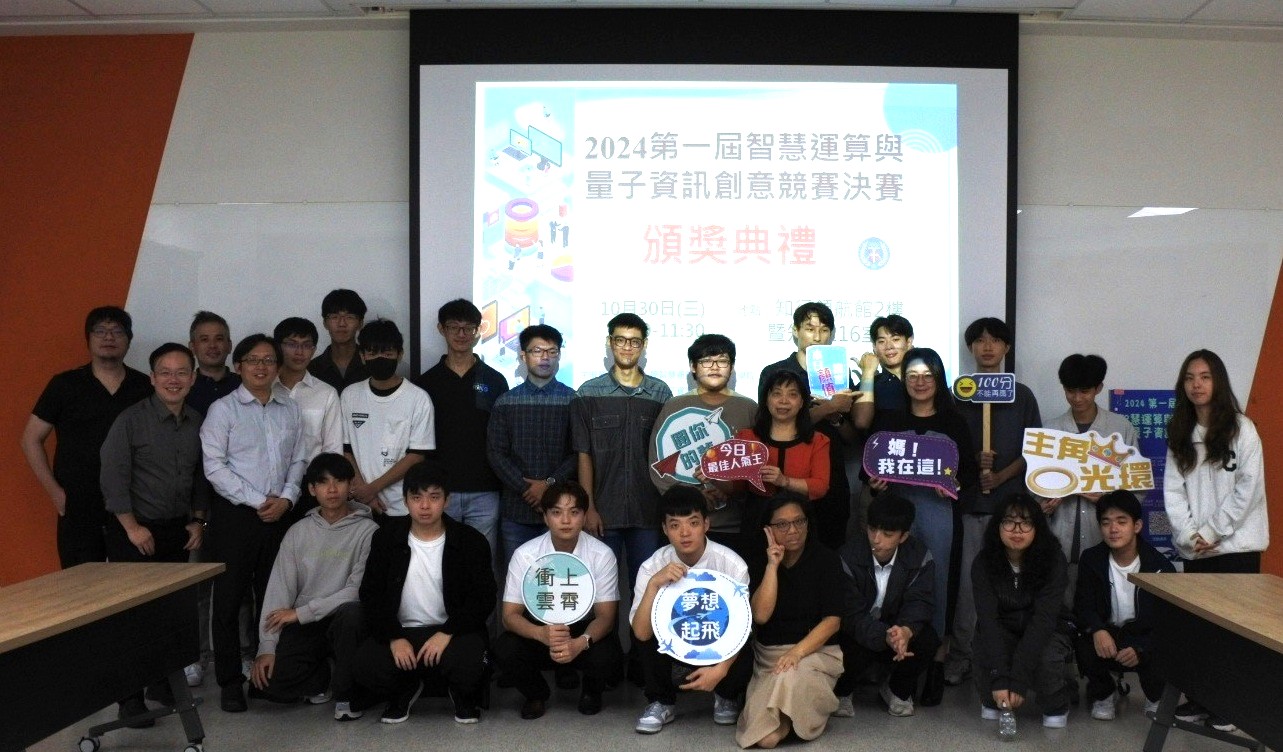


自臺大教授謝銘倫(左)手中接任理事長。.jpg)




